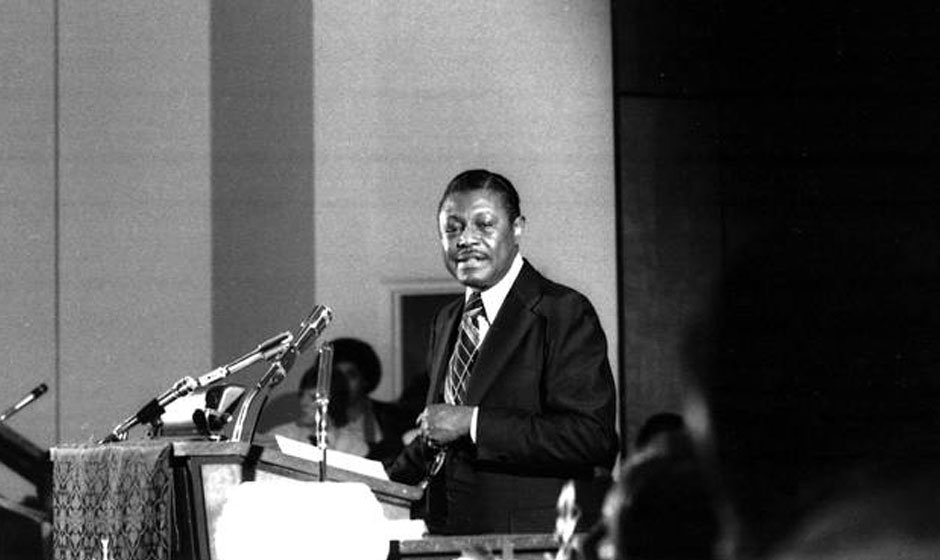In the vibrant city of Detroit, a man of great faith and legacy emerged as a prominent figure in the gospel music scene. Rev. Cecil Franklin, brother of the iconic Aretha Franklin, not only served as her business manager but also made significant contributions to the community as an assistant pastor at New Bethel Baptist Church. This article delves into the life and accomplishments of Rev. Cecil Franklin, highlighting his role within the church, his impact on the music industry, and his legacy.
Early Life and Family Background
Rev. Cecil Franklin was born on March 31, 1940, in Memphis, Shelby County, Tennessee. He was the son of the renowned Reverend C.L. Franklin and his wife, Barbara Siggers. Growing up in a household filled with gospel music and spiritual teachings, Cecil was immersed in the rich traditions of African American religious culture from an early age. Alongside his sisters, Aretha, Carolyn, and Erma Franklin, he was exposed to the power of music and its ability to touch people’s hearts and souls.
A Journey of Faith
Following in the footsteps of his father and guided by a deep sense of purpose, Cecil felt a calling to ministry. At a young age, he dedicated himself to serving God and the community, embarking on a journey that would shape his life and leave a lasting impact on those he encountered. Cecil’s commitment to his faith led him to become an assistant pastor at New Bethel Baptist Church, located on Linwood Boulevard in Detroit.
The Music Connection
While Cecil was deeply rooted in his religious duties, his connection to the music industry was equally profound. With his sister Aretha’s rise to stardom, Cecil took on the role of her dedicated business manager. Together, they navigated the complexities of the music industry, ensuring that Aretha’s talent and message reached a global audience. Their partnership extended beyond the realms of business, as Cecil often joined Aretha on stage, showcasing his own vocal prowess and sharing the stage with his sister.
A Civil Rights Advocate
Rev. Cecil Franklin’s involvement in the Civil Rights Movement further exemplified his commitment to social justice and equality. Like his father, he recognized the importance of using his platform to advocate for change and uplift marginalized communities. In June 1963, Cecil played a significant role in bringing the Reverend Dr. Martin Luther King Jr. to Detroit, where he delivered an early version of his iconic “I Have a Dream” speech. Through his activism and collaboration with civil rights leaders, Cecil helped break down barriers and fought against discrimination.
A Life of Service
Beyond his music and civil rights endeavors, Rev. Cecil Franklin dedicated his life to serving the congregation of New Bethel Baptist Church. As an assistant pastor, he provided spiritual guidance, delivered powerful sermons, and supported the church community in times of joy and sorrow. His presence and commitment to the church were deeply cherished by those who knew him, as he embodied the teachings of love, compassion, and faith.
Remembering Rev. Cecil Franklin
On December 26, 1989, tragedy struck when Rev. Cecil Franklin passed away at the age of 49. His death left a void in the hearts of his family, friends, and the community he had touched throughout his life. His funeral, held at New Bethel Baptist Church, was a testament to the impact he had made on countless lives. The outpouring of love and support from those in attendance showcased the profound influence Rev. Cecil Franklin had on both the spiritual and secular realms.
A Legacy
Though Rev. Cecil Franklin’s time on Earth was cut short, his legacy continues to live on. His contributions to the music industry, his unwavering faith, and his dedication to social justice remain an inspiration to many. His work as a business manager for his sister Aretha Franklin played a pivotal role in her success, and his impact on the gospel music scene cannot be overstated. Moreover, his involvement in the Civil Rights Movement helped pave the way for a more inclusive and equitable society.
Conclusion
Rev. Cecil Franklin was a man of faith, music, and activism. His unwavering commitment to his beliefs, his dedication to the church, and his impact on the music industry and civil rights movement have left an indelible mark on history. As we reflect on his life and legacy, let us remember the profound influence he had on those around him and strive to emulate his values of love, compassion, and justice. Rev. Cecil Franklin’s spirit will forever resonate within the hearts of those who were fortunate enough to witness his extraordinary journey.


